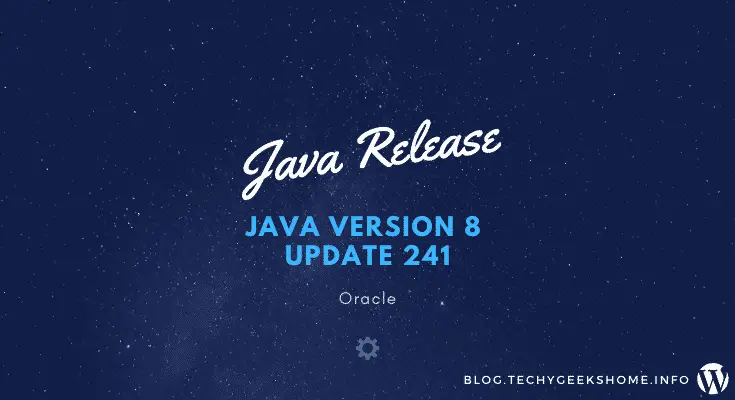

Again, not the simple table that I was looking for, but at least a good source of summarized information that I could work with. A huge thank you to the maintainers/authors of this article. Most sites simply stated anything released after, if they were even that specific.Įventually, I stumbled on to the right combination of search terms and the Wikipedia article, Java version history. After way too much Googling on the topic, I was unable to find any site that explicitly noted which versions needed a subscription. Recently, I was part of a project to help a client determine if they were running any Java versions that required a subscription. This article will not be commentary on Oracle’s decision or the caveats of licensing Java, but rather is intended to be a simple reference of Java versions. This included any updates for existing versions of Java. So, starting on Apany version of Java released thereafter would require users to pay Oracle for the privilege of using it. Tax Day 2019 was not only a day when Americans had to pay their taxes, but it was also the day that Oracle started charging a Java tax – no longer was Java free for commercial use. The updates are primarily related to the new release of Java, version 17 and Oracle’s new No-Fee Terms and Conditions license for these new Java versions. Set up the Gradle Plugin for Azure Web Apps by adding the plugin to your build.As the fun world of IT is always changing an update to this note is now needed. Here is a sample configuration in pom.xml: Then you can deploy your Java app to Azure using the following command: mvn package azure-webapp:deploy

This command adds a azure-webapp-maven-plugin plugin and related configuration by prompting you to select an existing Azure Web App or create a new one. With the Maven Plugin for Azure Web Apps, you can prepare your Maven Java project for Azure Web App easily with one command in your project root: mvn :azure-webapp-maven-plugin:2.2.0:config To show all supported Java versions, run the following command in the Cloud Shell: az webapp list-runtimes -os linux | grep "JAVA\|TOMCAT\|JBOSSEAP"

To show the current Java version, run the following command in the Cloud Shell: az webapp config show -resource-group -name -query linuxFxVersion


 0 kommentar(er)
0 kommentar(er)
